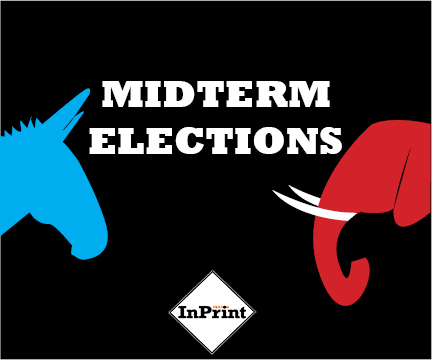A summary of Michigan’s midterm elections

November 8, 2018
The 2018 midterm elections will go down in history for the number of record-breaking firsts. From diversity, poll counts and new laws regarding recreational marijuana, the midterms are making headlines across the country.
Thirty-three newly elected women will add to the 65 incumbents in the House of Representatives. That brings the total number of women in the house to 98, beating the previous record of 85.
Democrats Sharice Davids and Deb Haaland, the first Native American women to be elected to Congress, are two of these new electees. Democrat Rashida Tlaib of the 13th congressional district of Michigan has become the first Muslim-American woman to be voted into Congress. Also Democrat, Jared Polis, who was elected as the governor of Colorado, became the first openly gay governor.
Despite Republican President Donald Trump winning Michigan in the 2016 presidential election, Michigan shifted toward the left this year and elected Democrat Gretchen Whitmer as their governor. Whitmer focused her campaign on fixing the roads, making healthcare more affordable, and addressing the opioid crisis. She is a strong advocate for education and a supporter of the “Me Too” movement. Whitmer won against Republican and former attorney general Bill Schuette.
Democratic incumbent Daniel Kildee beat Republican Travis Wines to continue representing Michigan’s 5th district, which includes Genesee, Bay and Saginaw Counties.
A highly contested race took place in Michigan’s 8th district: Livingston, Ingham and Oakland counties. First time candidate, Democrat Elissa Slotkin was not predicted to unseat Republican Mike Bishop as the U.S. representative. Even though the 8th district usually leans Republican, Slotkin had a large base of donors and was able secure a the position with 50.6 percent of the vote.
Michigan voters came to their precincts in record numbers. Voter turnout was at its highest for a midterm election in nearly 50 years; 4.3 million voters showed up to cast ballots, one million more than the last gubernatorial election.
According to the Detroit Free Press, one of the main reasons for the record-breaking number of voters was Michigan’s proposal one: the legalization of recreational marijuana. Michigan will become the 10th state in the nation and the first in the Midwest to legalize marijuana for recreational use.











